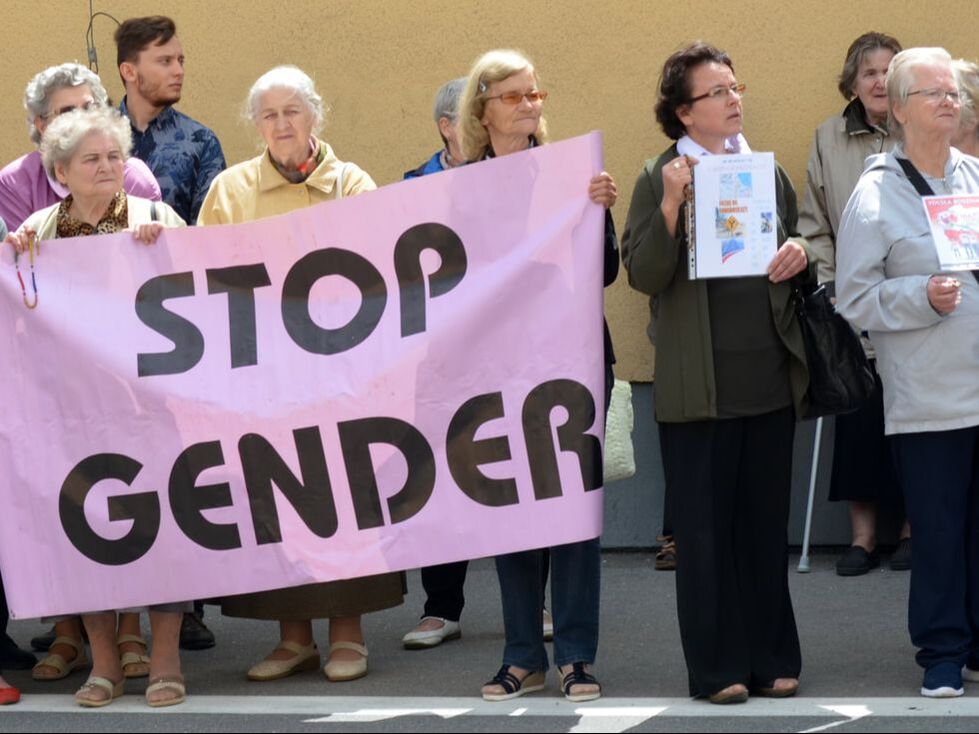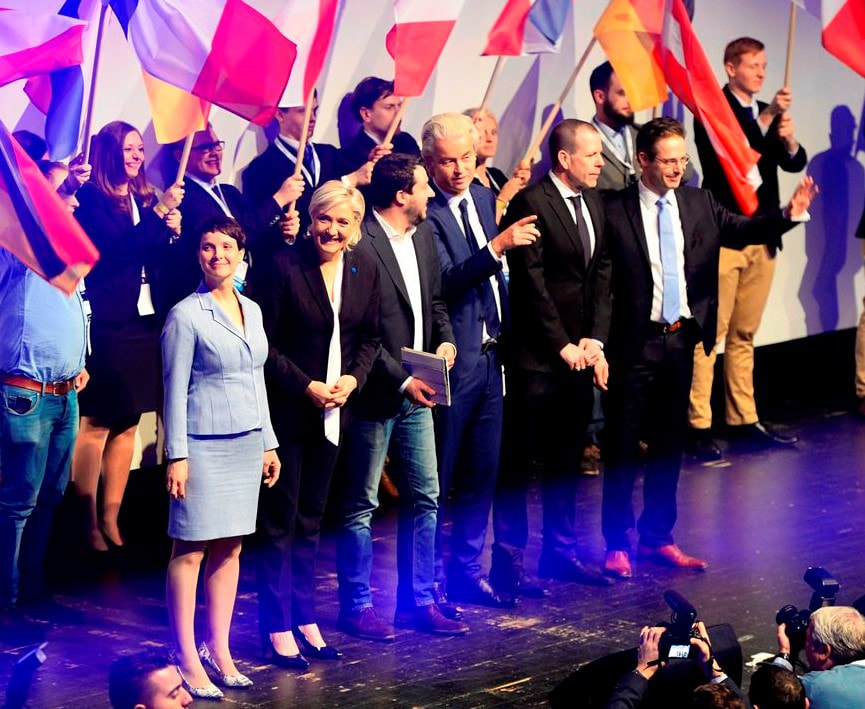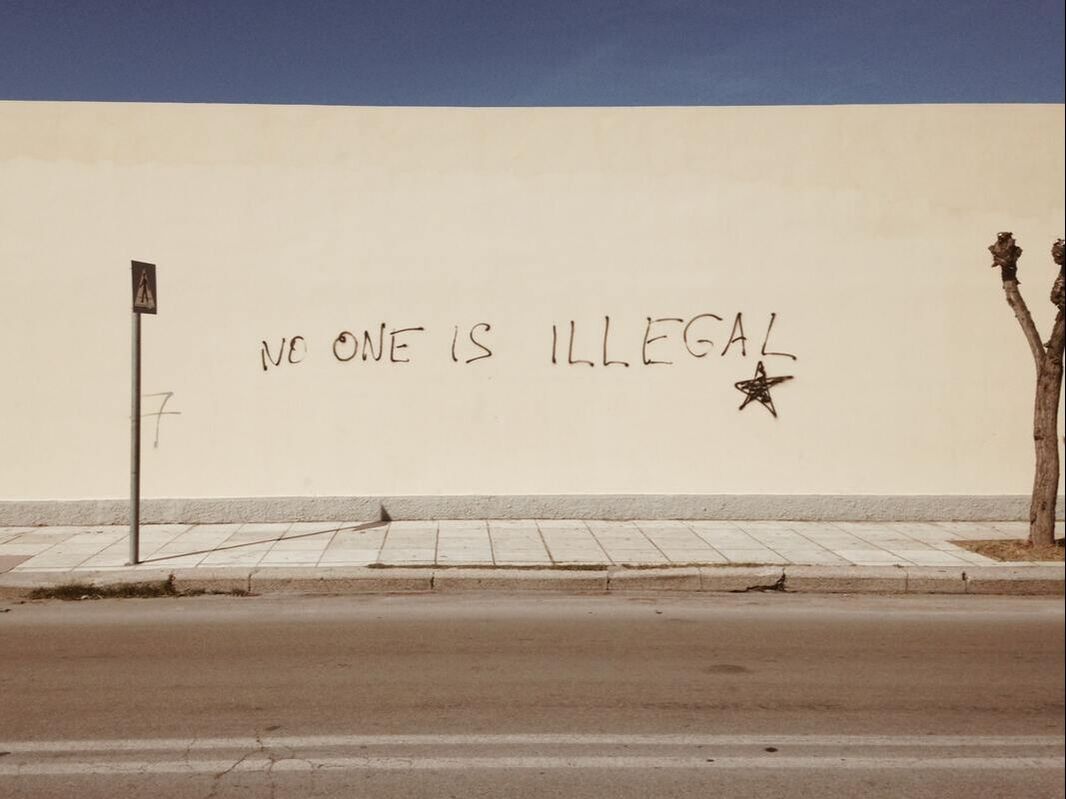|
|
|
Blog post by Fraser McQueen, University of Bristol, UK
Anxieties were running high on Sunday as French voters went to the polls in the second round of this year's legislative elections. At a time of rising support for the far right across Europe – and with France's current centrist administration having already passed hard-line anti-Muslim and anti-migrant policies – most observers believed that the far-right National Rally (RN) would emerge as the nation's strongest party. An overall majority seemed unlikely, but possible. The eventual result was very different: a shock victory for the left-wing New Popular Front (NFP). The RN and its allies finished third, with the 'centrist bloc' composed of President Emmanuel Macron's party and its allies coming in second. The far right was kept out through a resuscitation of what was historically labelled a 'Republican front'. As the second round of voting approached, an unprecedentedly high number of three-way contests in various constituencies looked likely. Many (although not all) candidates from either the left or centrist blocs therefore stood down, asking their first-round supporters to support an opponent better placed to beat the RN.
0 Comments
Blog post by Christian Lamour, Luxembourg Institute of Socio-Economic Research, Luxembourg
Late modernity in the European Union is characterized by the return of ‘hot nationalism’, with a growing number of citizens supporting radical right parties and leaders. These political entities and personnel have hammered out an electoral winning, ‘nation-first’ agenda, which is notably marketed as protecting the cultural identity and cohesion of a national people, jeopardized by alien threats. This vivid return of national cultural identities in the agenda of European states has appeared at a time when relationships between EU member states have been remarkably peaceful for generations, whereas their main long-term heritage has been the reproduction of national conflicts, territorial gains and momentary stabilization of borders following treaties torn apart in subsequent wars. The cultural enemies defined by today’s EU radical right within specific nation states are not neighbouring nations, but communities, the identities of which are represented as external to the world of nations. This means the elites are characterized as Europeanized/globalized, whilst the non-European migrants are racialized as oriental/African entities replacing the European national identities with the support of the globalized elite.
Blog post by Aaron Winter, Lancaster University, and Co-Editor, Identities: Global Studies in Culture and Power. Cross-posted from openDemocracy.
Since the horrific Hamas attack in Israel on 7 October and Israel’s assault on Gaza in response, I have heard a great deal about how Jewish people in Britain, as well as other places, are intimidated, afraid and under threat. According to Justin Cohen of The Jewish News, “the Jewish community at the moment is full of dread, full of fear, like I've never seen before”. According to the Campaign Against Antisemitism, British Jews felt “forced to hide” during “anti-Israel” protests in London. Havering Council in London even cancelled its annual Hanukkah menorah display out of fears it could “inflame tensions”, though subsequently reversed the decision. We have also seen similar cancellations in the US.
Blog post by George Newth, University of Bath
In late December 2023, UK prime minister Rishi Sunak gifted his Italian counterpart, Giorgia Meloni, an early Christmas present: his speech at the so-called Atreju rally organized by Meloni’s far-right Fratelli d’Italia (Brothers of Italy) party, contributed to a further legitimization and mainstreaming of far-right politics in Europe. By focusing predominantly on migration, Sunak employed a racist, xenophobic and nationalist discourse. When used by mainstream politicians, such narratives hold the power to euphemize, legitimize and normalize the politics of fear and hatred promoted by the far-right. Sunak’s appearance came barely a year after Meloni’s victory in the 2022 snap elections in Italy. The results of this poll marked a watershed moment in what has been a gradual but steady normalization, mainstreaming and rehabilitation of the far-right following the end of the Second World War. Meloni is Italy’s first far-right prime minister since 1945, and Fratelli d’Italia – the leading party in Italy’s current governing majority - has roots in Italy’s fascist past. In the weeks leading up to the 2022 elections, one of Meloni’s key discursive strategies was to depict her party as ‘centre-right’ and ‘conservative’. Since then, Meloni’s self-representation as a ‘moderate’ has been helped considerably by mainstream voices; Sunak’s speech in Rome was the latest step in this disturbing process.
Blog post by Aaron Winter, Lancaster University, and Co-Editor, Identities: Global Studies in Culture and Power. Cross-posted from British International Studies Association Voices from BoisMitidja.
This piece is based on my intervention at the British International Studies Association (BISA) Colonial, Postcolonial and Decolonial (CPD) event ‘Refusing Carcerality - A Public Roundtable’ at King’s College London on 14 June 2023. It was a great event and opportunity to hear other interventions, reflect on issues, and bring together some issues and ideas I have had working in Criminology and on counterextremism, counterterrorism and the far right in relation to important discussions about carcerality and abolition. Carcerality always extends beyond what are typically seen as carceral institutions, policies and punishments, particularly in the context of abolitionist theory and activism and our understanding of the carceral state and society. I would like to return it to the prison and penal system for a moment though to discuss how differences and alternatives to the carceral are constructed, used and played off one another in the context of counterextremism, counterterrorism and Criminology in ways that can distract from and ultimately serve an unequal and unjust system. This is particularly important if our opposition to the carceral is also about opposing this system, focusing on systemic inequalities and injustices (related to but expanding beyond ‘crime’) and envisioning more radical and truly emancipatory alternatives.
A broad and perhaps underappreciated feature of radical right populism is its simultaneous mobilization of cultural Christianity, on occasion combined with secularism, and women’s (and sometimes LGBT+) rights in a racializing, anti-immigration, and anti-Islamic discourse. Take for example the recent reaction in the USA of Republican Representative Marjorie Taylor Greene, who proclaimed on Twitter that ‘I am being attacked by the godless left because I said I’m a proud Christian Nationalist’ and added that she is even being called ‘a Nazi because I proudly love my country and my God’. By the same measure, in Italy, the League (La Lega) chairperson Matteo Salvini has previously maintained publicly his certainty that ‘Madonna will bring us the [political] victory’ and praised in religious conservative media the ‘traditional (heterosexual) family’.
Concocted by the conservative quarters of the Vatican, the disparaging term 'gender ideology' has been taken up not only by the radical right, but also by some centre-left, liberal commentators, seemingly unconcerned with the concept's troublesome history. One notable example is the Economist's last year article denouncing the so-called 'trans ideology', titled A backlash against gender ideology is starting in universities. In my Identities article, 'Framing ‘gender ideology’: religious populism in the Croatian Catholic Church', I consider the provenance of how the 'gender ideology' frame was utilized by the Catholic church in Croatia – one of the earliest cases of widespread anti-gender mobilization in Europe.
Having gone through a double transition to a capitalist liberal democracy, the revived religious nationalism in Croatia competed with liberal values from the 'free Western world'. The generous Vatican agreements signed in the late '90s by the authoritarian, right-wing government provided fertile ground for a blossoming of Catholic evangelization and proliferation of lay activism. In contrast to current research on the populist radical right which demonstrates the manipulation of religion committed by political actors, I identify factions of the Church itself as populist entrepreneurs. Polarizing populist discourse is traced back to Pope John Paul II's warnings against 'the war of the powerful against the weak', and connected to newer doctrinal, papal writings on issues of gender, ecology and politics.
While the ‘Common-Sense Group’ of MPs and Lords still retain the term, during the last few years the far-right conspiracy theory Cultural Marxism has fallen out of favour within mainstream British right-wing discourses. It has been largely superseded by the pejorative use of the term ‘woke’, which originated from the fight for racial justice in the USA. This blog post examines the transition from Cultural Marxism to woke and asks what does the derogatory use of so called ‘wokeism’ offer to its patrons that Cultural Marxism doesn’t?
Cultural Marxism is a long-standing far-right conspiracy theory. According to the American far-right, The Frankfurt School of Jewish Marxist intellectuals, who escaped Nazi Germany, initiated a plan to destabilise America from within by using their supposed control of the organs of culture, including education, the media, and churches, to attack Western civilisation and undermine pride in its past. The far-right sees the progressive civic and social movements that began in the 1960s – feminism, LGTBQ+ rights, black power, anti-colonial liberation, environmentalism, and pacifism as part of Cultural Marxism’s orchestrated effort to “destroy the American way of life as established by whites”.
Populist parties and leaders have become important actors across the globe. The 2022 presidential elections in France, and parliamentary elections in Sweden, as well as Turkey’s 2023 presidential elections not only revived academic research on populism and stirred scholarly debate about how to conceptualize it, but also compelled electors and political actors to reflect on the political developments taking place on the populist right front.
In our Identities article, ‘The veil as an object of right-wing populist politics: A comparative perspective of Turkey, Sweden, and France’, we selected three countries which have extremely different religious, secular, and cultural contexts. We then analyzed the political statements by the radical right-wing parties in each of the chosen countries: the Justice and Development Party (Adalet ve Kalkınma Partisi, AKP) in Turkey, the National Rally (Rassamblement National, NR) in France and the Sweden Democrats (Sverigedemokraterna, SDs) in Sweden.
Cross-posted by Ideology Theory Practice
Discussion and debate about the far right, its rise, origins and impact have become ubiquitous in academic research, political strategy, and media coverage in recent years. One of the issues increasingly underpinning such discussion is the relationship between the far right and the mainstream, and more specifically, the mainstreaming of the far right. This is particularly clear around elections when attention turns to the electoral performance of these parties. When they fare as well as predicted, catastrophic headlines simplify and hype what is usually a complex situation, ignoring key factors which shape electoral outcomes and inflate far-right results, such as trends in abstention and distrust towards mainstream politics. When these parties do not perform as well as predicted, the circus moves on to the next election and the hype starts afresh, often playing a role in the framing of, and potentially influencing, the process and policies, but also ignoring problems in mainstream, establishment parties and the system itself — including racism. This overwhelming focus on electoral competition tends to create a normative standard for measurement and brings misperceptions about the extent and form of mainstreaming. Tackling the issue of mainstreaming beyond elections and electoral parties and more holistically does not only allow for more comprehensive analysis that addresses diverse factors, manifestations, and implications of far-right ideas and politics, but is much-needed in order to challenge some of the harmful discourses around the topic peddled by politicians, journalists, and academics. 'A radical Islamist terrorist targeted the nightclub (…) in order to execute gay and lesbian citizens, because of their sexual orientation. It’s a strike at the heart and soul of who we are as a nation.'
- Donald Trump
PRR’s LGBT stances The statement from then-Presidential nominee Donald Trump followed the 2016 mass shooting at Pulse, a gay nightclub in Orlando, Florida. Later, in 2020, Trump referred to himself as 'the most pro-gay President in America'. Simultaneously, he appointed overtly anti-LGBT candidates to judicial positions and oversaw various policies legitimizing the exclusion of LGBTQ+ people. Trump’s contradictory attitude towards LGBTQ+ minorities is emblematic of a broader Western trend in populist radical right (PRR) politics: PRR actors often adopt pro-LGBTQ+ stances whilst simultaneously propagating not only heteronormative family values and conservative religious moralities, but actively anti-LGBTQ+ policies.
The adamant defense of Christianity by far-right populists, as well as their ostensible display of Christian symbols such as the rosary, have been interpreted as hijacking religion from the hands of religious leaders and institutions. In fact, religious leaders have often accused far-right politicians of instrumentalizing religion for political gain, while far-right politicians have accused religious leaders of not defending Christianity against Islam. In a sense, far-right populist actors present themselves as being better interpreters and defenders of Christianity than religious leaders.
As many scholars have pointed out, the Christianity that far-right populism defends is a matter of culture and tradition imbricated in the historical past and national identity rather than a matter of faith. Thus, populists have been accused of not being ‘true believers’ and twisting religion to better serve their aims, and self-identified religious people who support far-right populism have been framed as victims of the political instrumentalization of religion. In my Identities article, ‘Hijack or release? On the heuristic limits of the frame of instrumentalization of religion for discussing the entanglements of populism, religion, and gender’, I explore the relationships between populism and religion from another angle, taking the transformations undertaken by religion and religiosity in contemporary societies into account.
An interview with Aurelien Mondon, by Giorgos Venizelos. This interview was first published in Populism, Issue 4, July 2021.
You keynoted the 5th annual Populism Specialist Group workshop which focused on the theme ‘Populism: New Perspectives’. What are your general impressions? Where is the field moving these days? The various panels and papers confirmed to me that part of the field is moving in some very interesting and promising directions and it was a real honour to provide a keynote for the Populism Specialist Group as it is to me the most exciting forum to discuss populism. This is because scholars who present at the workshop tend to come from more critical approaches. Sadly, it would be mistaken to think that this necessarily reflects the wider environment and, unfortunately, there is much out there that continues to play into what some of us have termed populist hype or anti-populism. While critical approaches have progressed in recent years and occupy now a central place in discussions on populism, there is still plenty of work to be done and plenty of damage to be undone, something that is unavoidable when a term like populism becomes so central to mainstream politics.
'Refugees must be taught how to best fit in': so reads the title of Times columnist Clare Foges following the fall of Afghanistan in August 2021 to the Taliban and the subsequent mass exodus of Afghan men, women and children towards Britain. This wilfully juxtaposes a ‘non-native’ other with the presumed ‘natives’ of the UK and places expectations on the new arrivals to adapt to ‘our way of life’. This emphasis on assimilation and the eradication of difference and is one of the core demands often placed on the racialised ‘non-native’, ‘foreigner’ or ‘non-integrated’ co-citizen on their arrival to the West. It is but one of many recent examples of a far right discourse of ‘nativism’ being published in a mainstream broadsheet, and passed off as ‘sensible politics’.
Much of the scholarship on the far right has taken an ‘ideational approach’ to nativism which entails the following three assumptions:
|
|
Explore Identities at tandfonline.com/GIDE |
|
The views and opinions expressed on The Identities Blog are solely those of the original blog post authors, and not of the journal, Taylor & Francis Group or the University of Glasgow.














